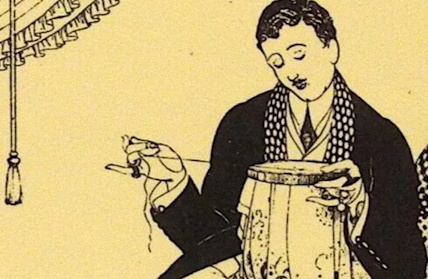One year in, Labour has a surprising amount to celebrate. But you wouldn’t know it
A year in, Starmer still has a mountain to climb. Flickr/Number 10 , CC BY-NC-ND
In the build-up to the 2024 election, Keir Starmer worked hard to show that his party could run Britain better than the Tories. He promised his government would offer stability after years of chaos – but also change. He stood for honesty but also a technocratic approach that resisted the easy answers of the populist right. The grown ups would be back in charge.
A year on, as he marks his first year in office, we might ask: how much difference did Labour’s 2024 election win make in the longer trajectory of British life? Are historians in future likely to say (as they often do about the 1945 and 1979 elections) that it led to political and social transformation?
Of course, it’s too early to say for certain, but not too early to look for signs.
In electoral terms, Labour gained a stonking 174-seat majority in 2024. But this victory came off the back of a remarkably slim vote share of 33.7% in an election with a near-historically low turnout. That suggests an emotional connection had not been made with the electorate (although it also reflected the way that the traditional two-party system is falling apart).
This result has defined Labour since then. It is a government that is undoubtedly in power but with a leader who few really understand. At a conference on the Starmer government held at Anglia Ruskin University in June 2025, I asked the audience how many could produce a one-sentence summary of what the government’s ideology was. Only a few felt they could do so.
In July 2024, Labour promised change. But what did “change” mean? Starmer’s Labour has failed to really spell out its sense of purpose. Starmer admits that he finds ideas difficult. In this sense (and this sense alone) he resembles President George H.W. Bush, who admitted he had trouble with the “vision thing”.
Starmer looks for solutions to particular problems rather than offering a view of the kind of Britain he wants to create. Without some kind of clear ideological purpose, however, the government ends up merely reacting to events whereas it should be shaping the narrative.
The good, the bad, and the not-very-Labour
When Labour returned to power in 1945, 1964 and 1997, there had been extensive discussions about the direction of Labour policy and how it could change society. In 1945, Clement Attlee’s focus was on welfare. Harold Wilson in 1964 drew on Tony Crosland’s revisionist approach to socialism, while in 1997 Tony Blair promised a “third way” in politics, reflecting the ideas of intellectuals such as Anthony Giddens.
This openness to new ideas barely happened between 2020 and 2024 beyond a sense that Labour needed to re-connect with the “red wall” voters it had lost.
On top of this, the government has become known for doing some remarkably un-Labour things. In September 2024, it changed the rules on winter fuel benefits to limit them to only some pensioners (although it has since partially backtracked under immense pressure from Labour MPs).
It continues to resist calls to abolish the two child-benefit cap that restricts some forms of support to families with a maximum of two children, despite clear evidence that doing so is an easy way to reduce child poverty. Most catastrophically, it has been humiliated by a backbench rebellion which forced it to gut its welfare bill.
Read more:
The mistakes Keir Starmer made over disability cuts – and how he can avoid future embarrassment
The government claims it is having to correct the dismal economic inheritance left by the Tories, preventing it from splashing the cash in the way Labour supporters want. Chancellor of the exchequer Rachel Reeves talks about “hard choices” in order to show how disciplined Labour is, thus hopefully reassuring investors and the bond market.
The result was the winter fuel payment crisis, which (despite a u-turn) threatens to become Labour’s poll tax – an iconic policy the electorate refuses to forgive.
Starmer and Reeves demonstrated very limited understanding of the politics of this decision: they seemed prepared to hurt poorer people while apparently leaving the wealthy largely untouched.
Starmer would argue that his government’s ideology has been expressed through its five missions, the most important of which is to stimulate economic growth. The June 2025 spending review was aimed at directing investment particularly towards the north of England and building infrastructure, including investment in transport. The government has also retained its focus on getting to net zero (which suggests a degree of radicalism).
Want more politics coverage from academic experts? Every week, we bring you informed analysis of developments in government and fact check the claims being made.
Sign up for our weekly politics newsletter, delivered every Friday.
Another mission that is also more obviously Labour in character is rebuilding the NHS, particularly by reducing waiting lists. Breaking down barriers to opportunity (another mission) has led to investment in education and the creation of breakfast clubs so that all children start the day properly fed.
Labour still talks the language of class, recognising how poorer people face obstacles. Similarly, the focus on stopping crime and making Britain’s streets safe has echoes of both Jim Callaghan and Tony Blair. The government’s preparedness (so far) to negotiate increased pay awards in the public sector also suggests a distinctive Labour approach – evidence that it is not simply offering austerity-lite. Starmer has even started the process of renationalising the railways.
Despite claims that it is maintaining austerity, the government has increased public expenditure by the highest level in decades. In that sense, the 2024 election has led to a new direction for the country.
Labour can make the claim that it is building a state that can respond to the demands of an ageing population, in a challenging global environment, who will be affected by the results of climate change. This (in one sentence) should be its message.
A familiar refrain
If we look at the new government in historical perspective, we should note that it is not unusual for people to complain that Labour lacks ideology or a moral purpose: such things were said about every prime minister the party has produced, from Ramsay MacDonald onwards. Starmer may well seem better in retrospect.
The overall impression of the prime minister, however, is that he is consumed by caution. Much of the time his government seems to chase the talking points put out by Reform UK, the best example being the “island of strangers” speech.
It may be that future historians will argue that the real significance of the 2024 election was not Labour’s capture of seats but the way it exposed the latent support for Nigel Farage’s new party that had been building across the country. However, there are still several years to recover this legacy, should Starmer commit to learning from the mistakes made in the first year of his tenure.
Rohan McWilliam is affiliated with The Labour Party (ordinary member).




